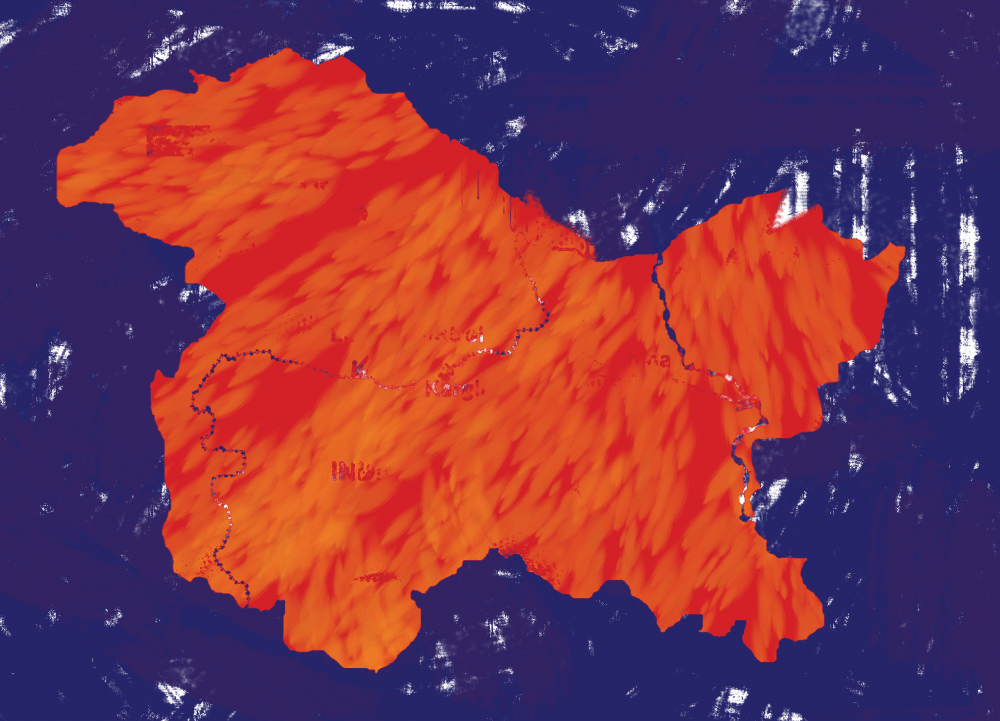When Pakistani Prime Minister Iman Khan appeared before the United Nations General Assembly on Friday he said, “Does he think the people of Kashmir are going to quietly accept the status quo?”
Of course, the “he” Khan is referring to is Narendra Modi, the prime minister of India, whose administration forced the Muslim majority state of Kashmir into a communication blackout and used other measures restricting the basic freedoms of Kashmiris.
India and Pakistan have been engaged in a bitter conflict over the semi-autonomous region of Kashmir since the ending of British rule in 1947. However, since losing its independence to India in 1947, Kashmir was granted a special status in the Indian constitution that allowed Kashmiris to govern themselves. That is, until two months ago.
On Aug. 5, 2019, this provision was revoked, and India put Kashmir under military rule, disconnecting phone lines, suspending internet access, closing educational institutions and jailing local politicians.
Khan highlighted the biggest issue in this conflict – the escalation of a territorial dispute between two nuclear powers. Although it is unlikely that Kashmir will become a flashpoint for a nuclear standoff, it is not impossible. Nevertheless, it is just as alarming that in 2019, India is creating an apartheid state without any serious repercussions from the international community.
Not only do Americans need to pay more attention to the Modi administration’s abhorrent policies in the Kashmir region but also to the many injustices occurring against Muslims around the world
Modi’s recent draconian policies are intended to consolidate power over Kashmir by diluting the Muslim population. Stripping Kashmir of its autonomy means that it will be regarded like any other Indian state, leading wealthy Hindus to buy much of the land in Kashmir.
According to the Indian Ministry of State and Home Affairs, terrorist-initiated incidents have decreased 28% this year, yet the Indian government approved increasing its military presence by 38,000 troops.
There is no security imperative for the Indian government to send more soldiers except to implement Modi’s oppressive curfews. The more troops Modi sends to Kashmir, the more those troops will be met with resistance from Kashmiris.
For example, after Khan’s remarks at the U.N., hundreds of Kashmiris took to the streets calling for the complete independence it once had. This speech alone caused enough unrest that six militants and one Indian soldier were killed, according to Indian authorities.
Despite the lack of action from the international community, many around the world are protesting the Indian government’s actions. Last month, over two dozen IU students marched from Woodburn Clock Tower to the Monroe County Courthouse to raise awareness about the crisis.
Bilal Mozzafar, the public relations chair for the IU Muslim Student Association, said, “This is happening in the only majority Muslim state in India, and if this were happening in the Western Hemisphere, there would be much more of an outcry."
However, it seems that Kashmiris are bent on resisting the status quo of being a battleground for Pakistan and India, with or without international support.
The human rights issues occurring in Kashmir are not isolated to that region. The apartheid state didn’t end in South Africa with Nelson Mandela. It is alive and well in Kashmir and Palestine and is also being carried out against Uyghurs in western China. Military expansionism didn’t end in World War II. Just ask Ukrainians in Crimea, Hong Kong residents or now Kashmiris.
Americans can easily become enthralled in our domestic issues, but we cannot overlook serious recurring injustices abroad. After all, the United States has the greatest global capability and influence to do something about them.






